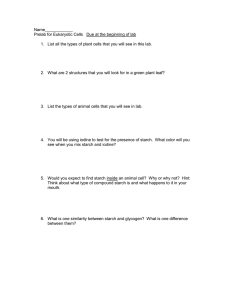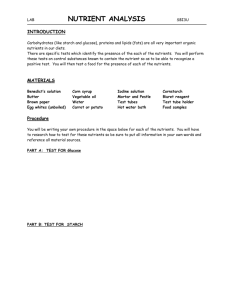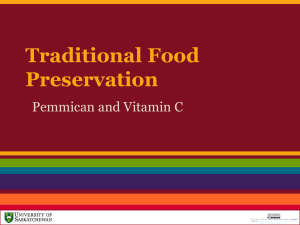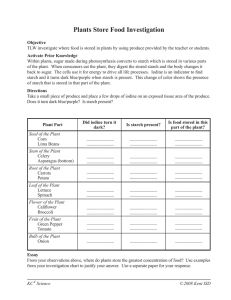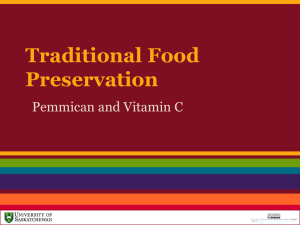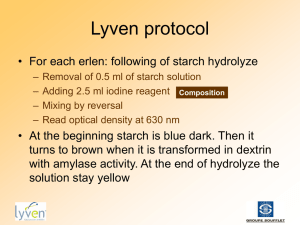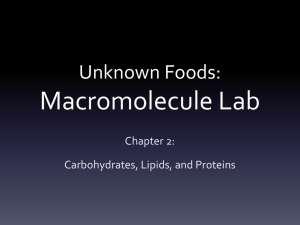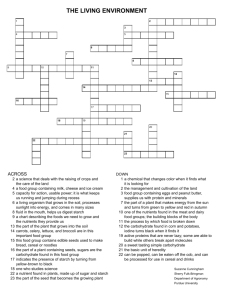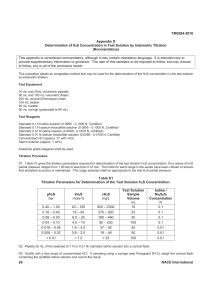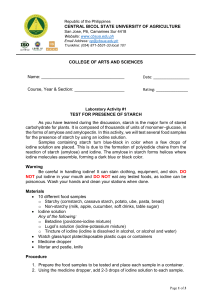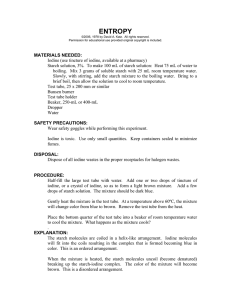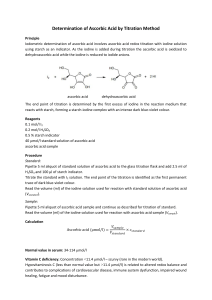Traditional Nutrients: Vitamin C Titration Date
advertisement
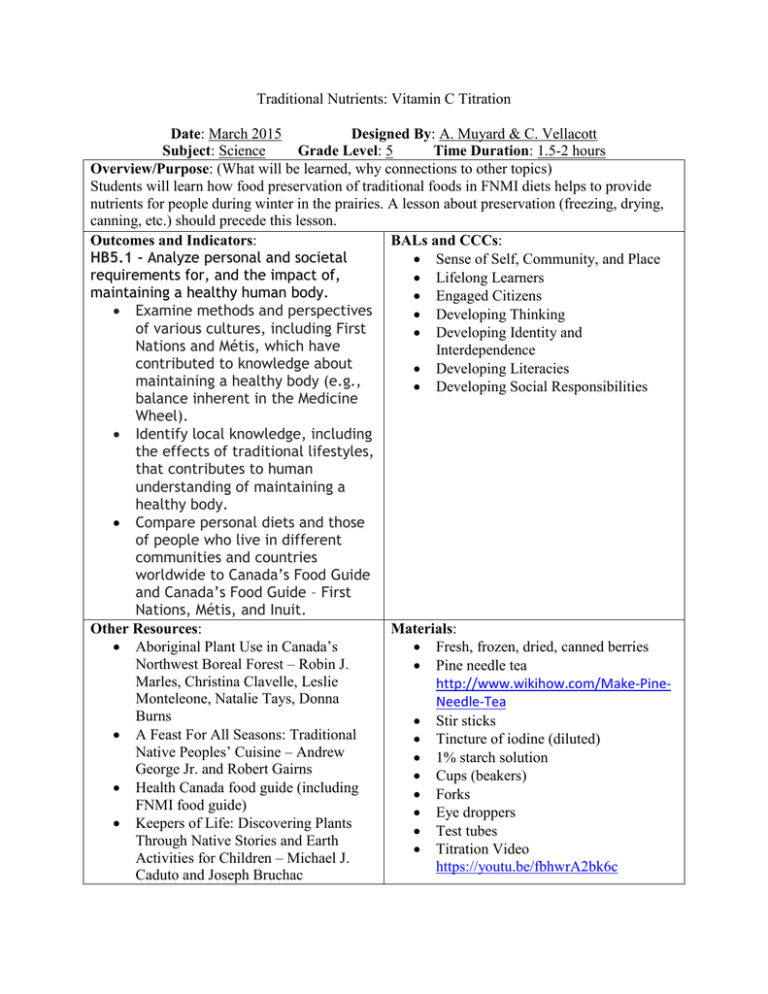
Traditional Nutrients: Vitamin C Titration Date: March 2015 Designed By: A. Muyard & C. Vellacott Subject: Science Grade Level: 5 Time Duration: 1.5-2 hours Overview/Purpose: (What will be learned, why connections to other topics) Students will learn how food preservation of traditional foods in FNMI diets helps to provide nutrients for people during winter in the prairies. A lesson about preservation (freezing, drying, canning, etc.) should precede this lesson. Outcomes and Indicators: BALs and CCCs: HB5.1 - Analyze personal and societal Sense of Self, Community, and Place requirements for, and the impact of, Lifelong Learners maintaining a healthy human body. Engaged Citizens Examine methods and perspectives Developing Thinking of various cultures, including First Developing Identity and Nations and Métis, which have Interdependence contributed to knowledge about Developing Literacies maintaining a healthy body (e.g., Developing Social Responsibilities balance inherent in the Medicine Wheel). Identify local knowledge, including the effects of traditional lifestyles, that contributes to human understanding of maintaining a healthy body. Compare personal diets and those of people who live in different communities and countries worldwide to Canada’s Food Guide and Canada’s Food Guide – First Nations, Métis, and Inuit. Other Resources: Materials: Aboriginal Plant Use in Canada’s Fresh, frozen, dried, canned berries Northwest Boreal Forest – Robin J. Pine needle tea Marles, Christina Clavelle, Leslie http://www.wikihow.com/Make-PineMonteleone, Natalie Tays, Donna Needle-Tea Burns Stir sticks A Feast For All Seasons: Traditional Tincture of iodine (diluted) Native Peoples’ Cuisine – Andrew 1% starch solution George Jr. and Robert Gairns Cups (beakers) Health Canada food guide (including Forks FNMI food guide) Eye droppers Keepers of Life: Discovering Plants Test tubes Through Native Stories and Earth Titration Video Activities for Children – Michael J. https://youtu.be/fbhwrA2bk6c Caduto and Joseph Bruchac Activities and Procedures: Introduction Revisit the concept of preservation and its use. Discuss the amount of nutrients in various types of berries, fresh and preserved. Instructional Methods See video for ideas on how to structure your classroom because of varied environments in classroom (https://youtu.be/fbhwrA2bk6c) Small groups would work best – each group having a different solution to titrate Closure Discuss the various amounts of vitamin C between the different solutions. **Can be implemented into other subjects such as ELA, Health, and Social Studies** Other Information: Prepare ahead of time the diluted iodine and starch solution o 40-60 drops of iodine per 50 ml of water o 1 teaspoon of starch for 300 ml of water You may want to have berry juice and pine needle tea prepared before the experiment to decrease the process time.
